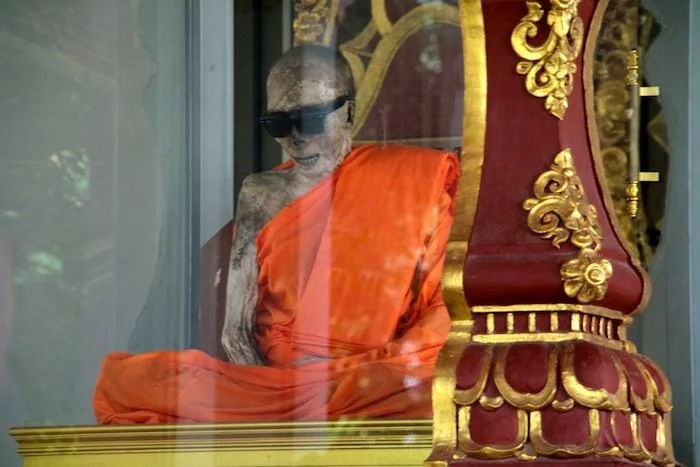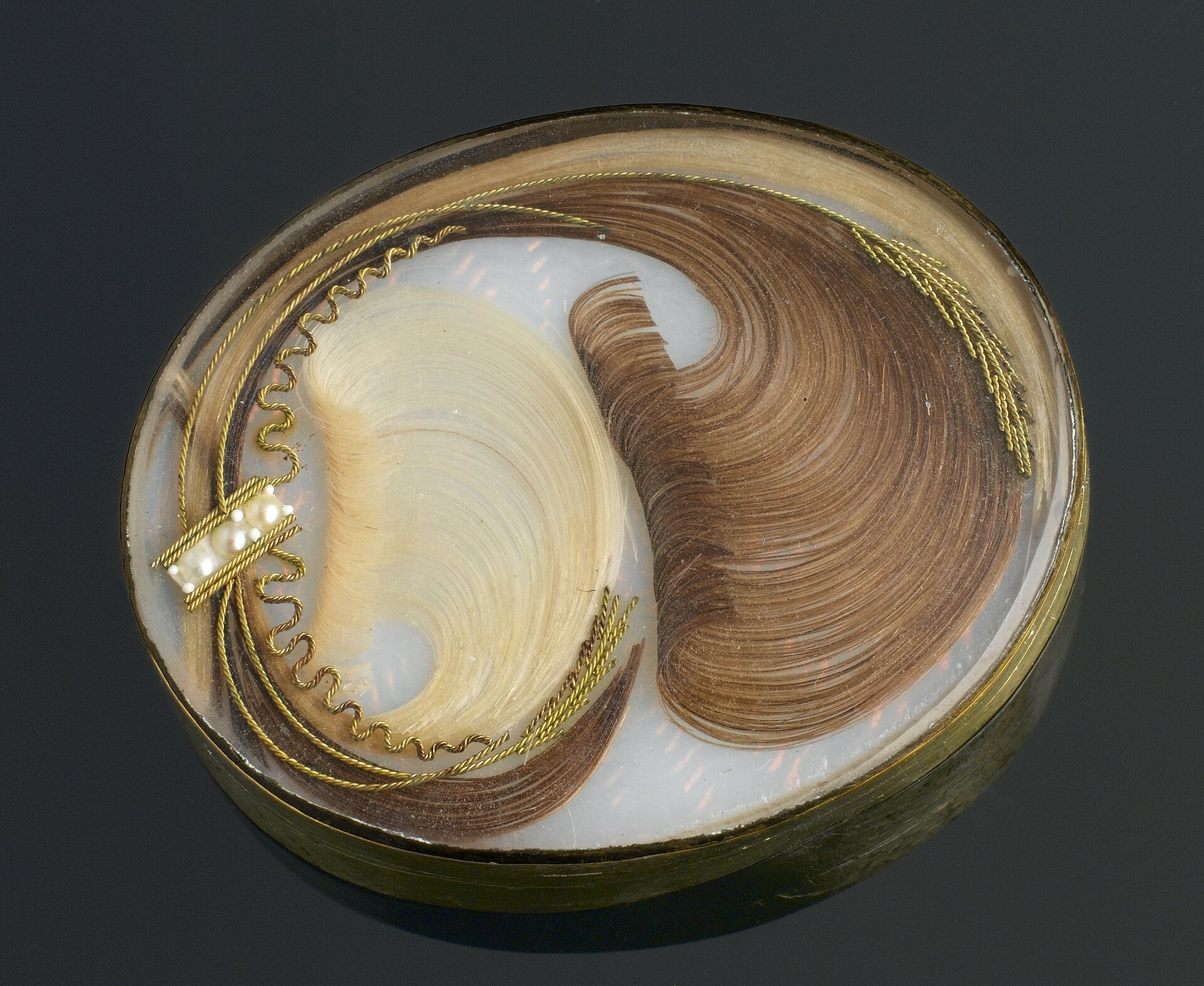Can thinking about death lead to better lives?
Death is a topic that is often avoided or feared in Norway. A taboo. It is not something that should be talked about or thought about. This also shapes our relationship with the natural process that we all must go through. But is it healthy? And could it be that we might have better lives by thinking more about death?
Luang Pho Daeng at the Wat Khunaram temple passed away in 1973, but continues to live on as a reminder that life is temporary. The photo was taken during my fieldwork in Thailand, which became the basis for my master's thesis. Photo by: Frank Hansen.
Focus on Death in Different Cultures
For many, thinking about death is an important strategy for a more meaningful and fulfilled life. While confronting our own mortality may seem intimidating, many cultures and philosophies around the world have suggested that reflection on death can lead to a deeper understanding of life and help us appreciate the value of the present moment.
In Buddhist Philosophy
In Buddhism, the concept of impermanence is central. By acknowledging that everything is temporary, including our own lives, Buddhists are encouraged to live in the moment and appreciate what is here and now. This mindset reminds us not to take life for granted and encourages a sense of gratitude for every moment we have. There are many examples of how this is practiced. Thai monks meditate in front of real skeletons, monks' bodies are preserved after death and placed in temples, and in Bhutan, people are encouraged to think about death five times a day.
A young boy reads Buddhist scriptures from the Mahayana tradition, which can be found in places like Tibet and Bhutan.
In the Memento Mori Tradition
Memento mori originates from ancient Rome, where people were reminded of the inevitable reality of death through symbolic art and objects. This concept reminds us that our time on earth is limited and encourages us to live our lives with purpose and intention.
“A lock of hair from a deceased relative crafted into a brooch with a gold edge and a mother-of-pearl base. Similar jewelry with personal memories was common in Europe in the 1700s and 1800s as a sign of mourning and simultaneously a memento mori, so that the living would not forget that life is fragile and transient.”
Kilde: Wikipedia/mementomori
In the Mexican Dia de los Muertos Celebration
In Dia de los Muertos, the dead are honored through lively festivities and colorful altars. Instead of fearing death, this culture embraces it as a natural part of the life cycle and views it as an opportunity to celebrate and remember those who have passed before us.
Dia de los Muertos.
What Does Research Say About Thoughts on Death?
There are scientific studies in this field, particularly within psychology, suggesting that reflection on death can have positive effects. For example, it can make us less focused on material values, make us more humorous, and give us a better perspective on our worth as human beings. There are several studies on how thinking about death affects us. If you're interested in researching further, 'mortality salience' is the term often used for this phenomenon in the research literature.
But What If We Have a Negative Belief About What Happens After Death?
For many, death represents eternal darkness or punishment in hell. I don't have the answers on how people will react to reflection on death, but studies have shown that many fear dying because of their beliefs about what happens afterward. It would be reasonable to assume that different people might react differently to this “strategy” commonly found in cultures with other worldviews.
Earth. Foto: NASA
Reality Check and Big Thoughts
I believe it’s important to pause sometimes and reflect on what this life really is, beyond work, school, home, and possessions. What we do know for sure is that we’re living on a ball spinning in a space so vast we can’t even comprehend it. In the grand scheme of things, we are a tiny grain of sand surrounded by an immense number of planets, stars, and universes. We don’t know where we come from or where we’re going. We know that we will die, but we don’t know when. The time we have here is a blink in eternity. And in 100 years, it’s likely that no one will even know who we were. Pure science fiction, if you ask me. This perspective, or should we call it reality, is very liberating for me and increases my desire to pursue my dreams. It helps me not to focus negatively on things that are insignificant in the bigger picture and to appreciate life more. It’s harder to worry with these perspectives, and you realize that you might as well let go and enjoy life. What do you think?
How you choose to think is, of course, up to you.





